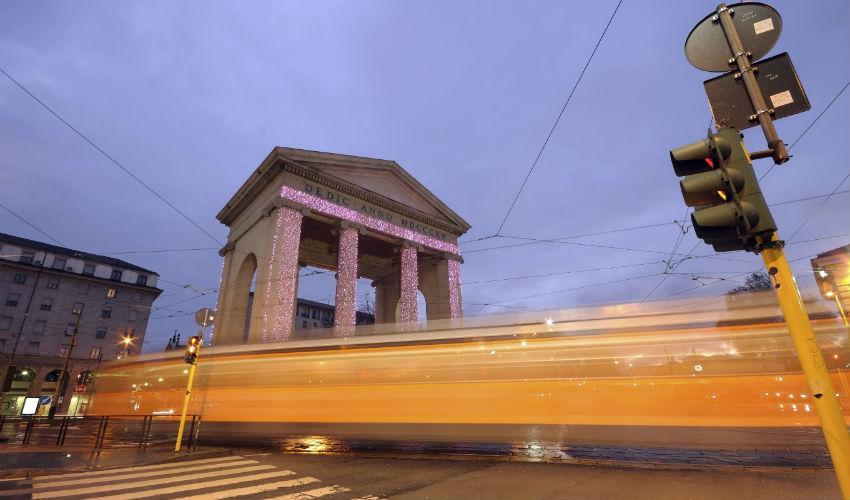
Milan Looks to London: Benefits of 200 Mln Euro from Paying Transport Services Contactless
A STUDY BY BOCCONI'S CERTET IN COLLABORATION WITH MASTERCARD ESTIMATES THE BENEFITS IN TEN YEARS FOR TRANSPORT COMPANIES, PASSENGERS AND THE COMMUNITY. A PILOT PROJECT ON THE MALPENSA EXPRESS TRAIN WOULD INCREASE PASSENGERS BY 32%If the current mode of payment for public transport services in the Milan metropolitan area and the Malpensa Express train was integrated with the option of contactless paying with a credit card directly to the turnstiles, it would result in a total benefit of 200 million euro in ten years, according to Gli strumenti di pagamento quali leve per lo sviluppo di una smart city. Il caso dei servizi di trasporto nelle aree metropolitane, a study by Bocconi’s CERTET in collaboration with MasterCard, presented today at Bocconi University.
The benefit calculated is divided between passengers, transport companies and the community, thanks to the environmental benefits arising from the increased use of public transport, especially by non-habitual passengers.
The study also highlights that implementing a pilot project on the Malpensa Express train, that connects the airport with the Cadorna and Central stations, would increase passengers by 32%, thanks to the modal shift from buses and taxis, related to the simplification of ticketing.
The proposed action is similar to that developed by Transport for London since the end of 2014 and the Gatwick Express since January 2016, with significant economic benefits for the community and a positive change in the perception of accessibility to the entire metropolitan area, thanks to the integration of MasterCard contactless technology that has innovated the Oyster system. In particular, London's experience shows that in 18 months the contactless payment has been adopted by more than 25% of non-habitual passengers.
"Our goal is to promote the creation of smart cities, introducing digital payments in their DNA, to improve efficiency and sustainability, and to make cities safer and more accessible for citizens and tourists", said Paolo Battiston, Division President of MasterCard Italy & Greece, "MasterCard wants to be an active player in the modernization of Milan and the whole country, thanks to our global experience and our technological expertise. Making cities more sustainable creates a solid foundation for future growth, with important benefits, such as those highlighted by the Bocconi analysis".
"The use of contactless payment cards for these services is not a zero-sum game in which sales commissions go from retailers to the banking system. In fact, these technologies reduce costs and increase the size of the transport services market", says Oliviero Baccelli, Director of Bocconi’s CERTET. "The focus on the development of technologies to reduce downtime benefits public transport companies and non-habitual users. In Lombardy, for example, they currently face 65 different tariff systems".
The work carried out by Bocconi CERTET presents a cost-benefit analysis as a reference model to appreciate the convenience of social interventions of public relevance. In particular, in the two cases examined, relating to the Milan network (the network managed by ATM and the urban stretch of the Passante subterranean railway) and the Malpensa Express, CERTET researchers consider the investment and operational costs needed to adapt ticket machines and turnstiles and the individual and external benefits, expressed in terms of cost advantages for transport companies, time for users and environment for the reference community.
The parameters used in the analysis were derived from interviews with industry operators, previous studies by some of the research team members and official EU documents and take into account the specificities of Milan, home to 7.2 million international tourists a year and 1.2 million non-habitual passengers a day.
The benefit would be particularly significant in the case of Malpensa Express: the adjustment costs of turnstiles (about fifty in all) are limited and non-habitual passengers are prevalent. Estimation is that the new contactless payment system will attract 648,000 extra passengers a year on trains; to cover all costs in the first year 20,458 passengers would be sufficient (56 per day). The adjustment of thousands of turnstiles of the urban network would, however, require a limited public funding, justified by the collective benefits that would result.
by Fabio Todesco
